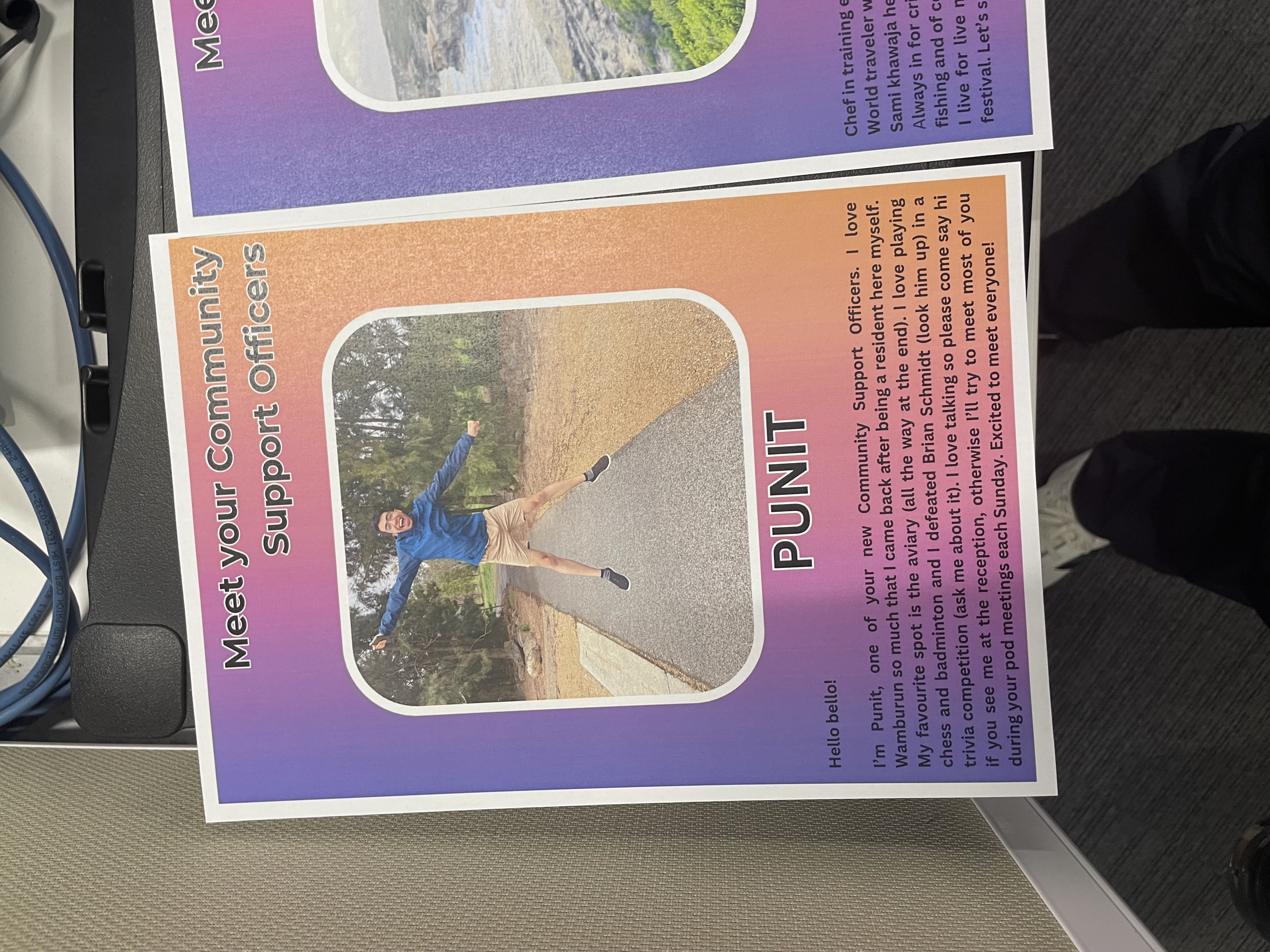My Role
My role is part of one of the most unique models across Australia. It provides pastoral care and support to one of the biggest on-campus students in an univerity, and no two days are the same.
Working in a university setting, I’m responsible for supporting the residents of ANU’s residential halls. I’m also the first point of contact for over 500 people living in the building during after-hours — from 4pm to midnight.
Some of the things I deal with (but not limited to) include:
- Resolving noise complaints and other conflicts
- Handling intoxicated residents
- Providing wellbeing support to residents under stress
- Creating an inclusive and positive environment by being proactive and engaged in the community
- Assisting with resident events, wherever needed
- Providing administrative support — maintaining records, processing payments, handling audits, lockouts, and other tasks
Best Parts
I really enjoy this role — not just because it fits well with my study schedule, but because of the impact I get to make in the community.
I genuinely like helping people. I enjoy conversations, and I’m really good at handling difficult situations. I love solving problems — being able to look at a challenge and work through different ways to approach it efficiently.
This role also feels quite wholesome. When people express their gratitude, and you become part of a diverse community with people from all over the world and different backgrounds — it means something.
Skills Needed
Here are a few key skills I’ve come to really value in this job — things I’ve learned and gotten better at after facing these situations week after week.
1. Stay Calm and Firm
In emergencies, it’s crucial to stay composed and think through your steps. In my experience, that’s what helps you make the right call — not rushing, but staying clear-headed and firm in your decision-making.
2. Communication is Key
It can’t be emphasised enough how important communication is, especially in a role like this. You need to be clear with all parties involved.
If you’re tied up with one incident, let others know you’ll get to them once you’re done. Don’t leave room for ambiguity. Communicate what you can and cannot do — and just as importantly, be comfortable with saying no when needed.
3. Embrace Silence
Whether you’re speaking with someone who’s traumatised or simply wants to talk, give them the space to talk.
One of the biggest lessons I learned through my Mental Health First Aid certificate is the importance of silence. It can be uncomfortable at first (It used to make me very quite uncomfortable and I always tried to fill the vacuum) — but embracing silence allows the other person to feel safe and open up.
It also gives you time to think, consider different protocols, and approach situations thoughtfully. Knowing when to speak and when to pause comes with experience — it’s not something that can be taught in theory.
4. Don’t Assume
This is something I strongly believe in. If you’re unsure, just ask.
Making assumptions not only leads to confusion, but also reinforces stereotypes. Asking questions brings clarity and shows respect.
If you are unsure, just ask.
5. Juggling Priorities
(Consider expanding this section — perhaps with an example of how you’ve managed competing demands or time-sensitive tasks?)
Personal Takeaways
(In Progress)
